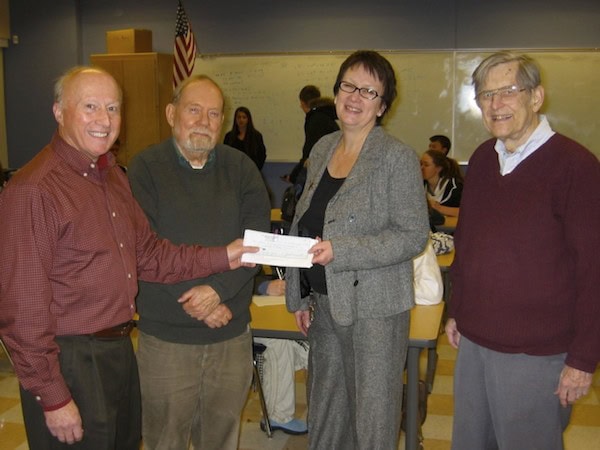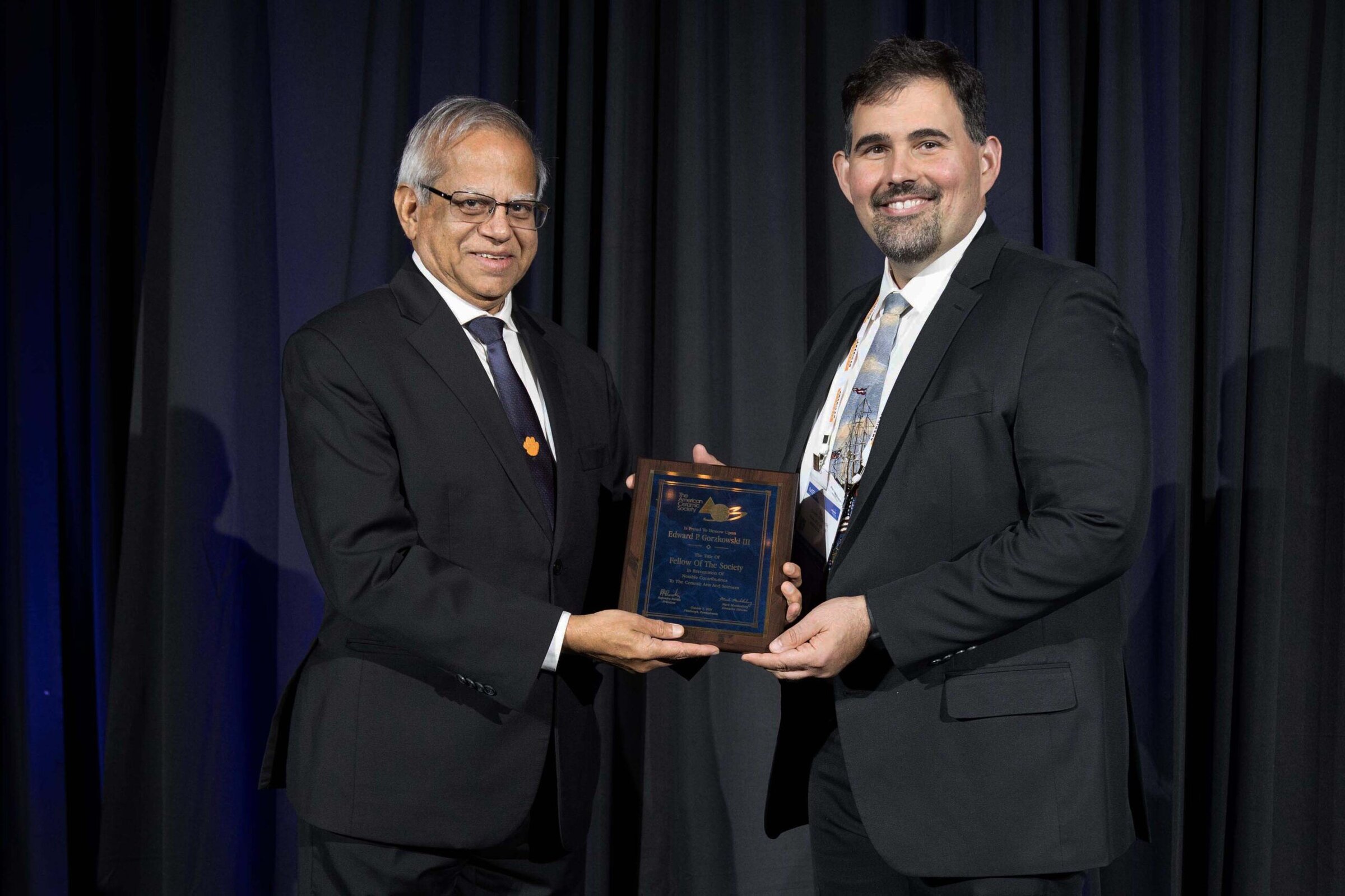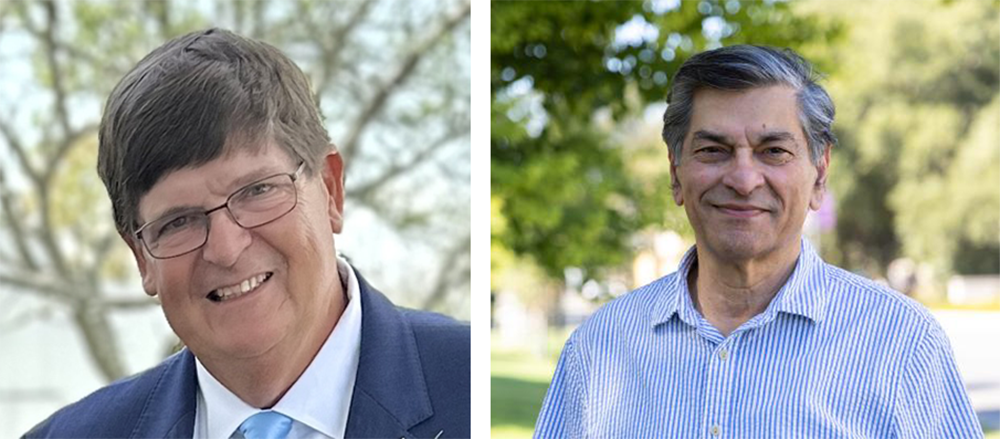
From 2008 (left to right)—Harry Strock, Lou Trostel, and Neil Ault present a check from the New England Section Neil N. Ault Education Fund to Carol Sullivan, Wachusetts Regional High School science department chair. Credit: ACerS NE Section
Neil Ault, ACerS Fellow and Distinguished Life Member, died in his sleep on Feb. 11, 2016 at the age of 93.
Ault’s life bears witness to what can be accomplished by commitment and follow-through.
Ault, originally from Findlay, Ohio, earned his Ph.D. in ceramic engineering from Ohio State University in 1950. On graduating, he took a position with Norton Company in Worcester, Mass., and stayed with the company until he retired in 1987 at the age of 65.
His obituary states that he enjoyed “pondering what the future might look like 100 years from now.” But, more than pondering, he invested himself heavily in the people who could make that future a century out happen.
When the Soviet Union successfully launched Sputnik in 1957, the Wachusett Regional School District, where Ault and his family lived in central Massachussetts, decided to “do something” to prepare the next generation of students for careers in science.
Because they recruited Ault to participate, the program has been preparing that “next generation” since 1959—57 years!
Today’s Science Seminar was one of the first programs supported by the Joe Berg Foundation, founded in 1957 in direct response to Sputnik. The Foundation’s mission was to to encourage advanced high school students and help build their science and engineering skills.
The first Wachusett Regional High School (WRHS) Science Seminar selected an elite group of 12 students, who were guided by six advisors from the community. Ault was one of the founding six advisors recruited in 1959, and he continued to serve as an advisor until his death. (Fellow ACerS members and neighbors Louis Trostel and Harry Strock also became advisors, serving 50 and 31 years respectively.) At its peak, the Joe Berg Foundation boasted 700 Science Seminar programs in United States high schools. Today two remain: Neil Ault’s at WRHS and a program in Florida.
Marina Pascucci, ACerS past president, says, “Neil made a commitment to Science Seminar and followed through. He gave it his all.” The program has impacted well over 1,000 students under the guidance of more than 50 advisors since its inception.
Besides his work with high school students, Ault “was a constant in the Northeast Section” of ACerS, according to Pascucci. He rarely missed a Section meeting, to which he carpooled with his pals, Trostel and Strock.
“He will always be remembered as a wise counselor to the New England Section—asking insightful questions of our speakers, concerned with the business and the future of the Section, and offering praise and constructive criticism, and engaging with young people whenever possible,” she says. In 1998, the NE Section established the Neil N. Ault Education Fund to help students from the WRHS Science Seminar attend state and regional science fairs.
“He was a very open guy. Everyone in the Section knew him; he was always approachable. He will be missed very much,” says Pascucci.
Ault leaves Anne, his wife of nearly 70 years, a daughter, two sons and their families, including two grandchildren. And thousands of high school students whose lives and careers he touched and helped form.
Author
Eileen De Guire
Spotlight Categories
- Member Highlights


